
by Ewa Samples | Mar 21, 2014 | 2014, Being Thankful, Child Care, Childhood, Family, Girls, Home, Inspirational, Kids, Life Balance, Life Lesson, Me-Time, Motherhood, Music, Parenting, Polish Mom Photographer, Teenagers, USA, Working Mother, World Motherhood, Younger Children
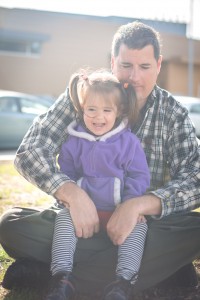 All parents agree, once their first child came into their lives, everything changed. Our life routine changed, some of our friends changed, our clean house no longer stayed clean, the term “empty laundry basket” became an abstract thing, our plans for the future changed…even some of our dreams. We no longer sleep, we no longer eat, we no longer have the time to take care of ourselves as much as we wish. Eating at a dining table is a privilege, at least in my house, because most of my meals are consumed on the run, and my kids are not even in school yet!
All parents agree, once their first child came into their lives, everything changed. Our life routine changed, some of our friends changed, our clean house no longer stayed clean, the term “empty laundry basket” became an abstract thing, our plans for the future changed…even some of our dreams. We no longer sleep, we no longer eat, we no longer have the time to take care of ourselves as much as we wish. Eating at a dining table is a privilege, at least in my house, because most of my meals are consumed on the run, and my kids are not even in school yet!
I go to mom’s groups, family gatherings, coffee with friends, and I hear the same thing over, and over again: “It will all pass faster than you expect, and you’ll become free again.” No more dirty diapers, no more wiping floors and ceilings after each meal, no more sleepless nights, no more this, and no more that…
And I’m thinking, is it really all that bad…having young children around? Is it really that hard? Yes, it is hard, but it will become harder. Sleepless nights, because the baby is hungry, or because she needs a new diaper will change to sleepless nights because my daughters are out on a date, or on a road trip across the country, and I’m left with all the visions in my head about what may go wrong out there. (more…)
Ewa was born, and raised in Poland. She graduated University with a master's degree in Mass-Media Education. This daring mom hitchhiked from Berlin, Germany through Switzerland and France to Barcelona, Spain and back again!
She left Poland to become an Au Pair in California and looked after twins of gay parents for almost 2 years. There, she met her future husband through Couch Surfing, an international non-profit network that connects travelers with locals.
Today she enjoys her life one picture at a time. She runs a photography business in sunny California and document her daughters life one picture at a time.
You can find this artistic mom on her blog, Ewa Samples Photography, on Twitter @EwaSamples or on Facebook!
More Posts - Website
Follow Me:





by Sophie Walker (UK) | Mar 17, 2014 | 2014, Being Thankful, Childhood, Education, Girls, Kids, Life Lesson, Motherhood, Parenting, Preschool, Sophie Walker, Special Needs, UK, Uncategorized, World Motherhood, Younger Children
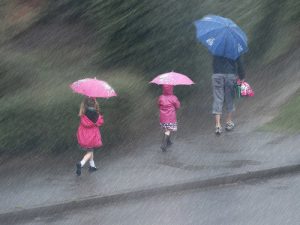 Betty and I are walking to school in the rain. It is a miserable morning – grey, cold and squally. We are tilting our umbrellas sideways to shield ourselves from the gusts of needles thrown at us as we progress along the avenue. I am forcing bright chatter and thinking of the warm cup of tea I will have when I get home.
Betty and I are walking to school in the rain. It is a miserable morning – grey, cold and squally. We are tilting our umbrellas sideways to shield ourselves from the gusts of needles thrown at us as we progress along the avenue. I am forcing bright chatter and thinking of the warm cup of tea I will have when I get home.
Betty’s umbrella is white and pink and round like a daisy. It has pretty little petals and yellow stripes, and a bumble-bee attached to the top. The bumble-bee is looking very sorry for himself this morning, buffeted hither and to. I can’t see Betty’s face but I can tell by the drag of her toes that she is feeling sorry for herself too.
I lean down and enquire: “How are you doing, darling?”
A woebegone voice answers. “Ok.”
Then she asks: “Mummy, did this umbrella used to belong to my big sister?”
I tell her yes, it did.
“And Mummy, did she used to walk to school with it too?”
Again, I aver, she did.
A pause. Then, cautiously: “Mummy, did my sister ever used to not want to go to school?”
I can see where this is going now and I give her hand a sympathetic little squeeze. I say yes, there were days when her big sister didn’t really feel like it either.
At this Betty stops and tips back the rim of her umbrella to look up at me. Her eyes are welling with tears. She asks: “And did she used to worry about making mistakes too?”
Betty started school last September at the age of four. She is now four and a half and a month into her second term. She flew through the first twelve weeks with ease – enthusiastic, inquisitive, and keen to try new things. This term, she has cried often on leaving me in the mornings. Afternoons start with jubilation at being home, then slide slowly from relaxation to upset as night approaches.
As soon as I call her for her bath it is her cue to start an hour-long conversation about whether or not she will have to go to school again in the morning.
Now I look at her, looking up at me, her face a mixture of rain and tears, and I think: She’s far too little for all this. I bend down to her and put my umbrella down and hug her. I tell her: “Everyone makes mistakes. It doesn’t matter about making mistakes. The thing is just to try your best. Have a little go.”
But as I’m saying it, I’m thinking that really, I just want to put her in my pocket and take her home. She is not yet five. She shouldn’t be afraid of new things in case she finds herself unable to do them to a standard that will make her happy.
Last term, she learned phonics – how to make the sounds of the alphabet. This term, she has realised that those phonics are letters and that by putting them together and sounding them out she can both read and write. And it terrifies her.
It is Learning with a capital ‘L’. Every day now she wonders what Learning she will have to conquer next.
The British education system is under huge scrutiny at the moment. The coalition government’s Conservative education minister Michael Gove has decided that it needs an overhaul. There is too much emphasis on coursework, so he has decreed the system should revert to a grand slam of end-of-year exams. There is not enough emphasis on rote learning, so reciting dates and times-tables are back in.
So far I have reacted to Gove’s decisions with horror mainly because of the impact they will likely have on my elder daughter, who has Asperger’s Syndrome, and will struggle even more under a system that removes the chance for her to shine via project work. Gove’s reforms are a disaster for Grace.
Now, looking at Betty, who I had expected to skip through the system, I find myself wondering how she will cope. Recently Gove said he was thinking of introducing formal assessments for four and five-year-olds when they enter school in England, in order to be able to monitor their progress.
I care that my children should progress well through the education system, and flourish in their chosen careers. But as I kissed Betty goodbye in her classroom that morning, and watched her teacher take her gently by the hand to distract her from her upset, I thought: there must be a better way to do this.
So – how do you do it, where you live? And do you think it works?
This is an original post to World Moms Blog from our writer in England, Sophie Walker.
The picture used in this post is credited to Roger McCallum. It holds a Flickr Creative Commons attribution license.

Writer, mother, runner: Sophie works for an international news agency and has written about economics, politics, trade, war, diplomacy and finance from datelines as diverse as Paris, Washington, Hong Kong, Kabul, Baghdad and Islamabad. She now lives in London with her husband, two daughters and two step-sons.
Sophie's elder daughter Grace was diagnosed with Asperger Syndrome several years ago. Grace is a bright, artistic girl who nonetheless struggles to fit into a world she often finds hard to understand. Sophie and Grace have come across great kindness but more often been shocked by how little people know and understand about autism and by how difficult it is to get Grace the help she needs.
Sophie writes about Grace’s daily challenges, and those of the grueling training regimes she sets herself to run long-distance events in order to raise awareness and funds for Britain’s National Autistic Society so that Grace and children like her can blossom. Her book "Grace Under Pressure: Going The Distance as an Asperger's Mum" was published by Little, Brown (Piatkus) in 2012. Her blog is called Grace Under Pressure.
More Posts

by Kyla P'an (Portugal) | Mar 4, 2014 | 2014, Awareness, Being Thankful, Education, Human Rights, Humanity, Inspirational, Interviews, Kids, Life Lesson, Motherhood, Older Children, Social Good, Social Media, Technology, USA, Womanhood, World Voice, Younger Children
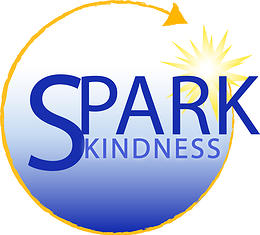 SPARK = Successful, Positive, Authentic, Resilient, Kids
SPARK = Successful, Positive, Authentic, Resilient, Kids
The moment you sit down with Christine Guthery, a funny transformation takes place, you find yourself swelling with optimism, self-confidence and personal-potential. It’s a gift Christine has, she simultaneously exudes these attributes and brings them out in others. She’s passionate about what she does and her enthusiasm has a way of igniting passion in others.
Christine is a lawyer by training but as the mother of three children (now ages 16, 9 and 7), she has discovered that her real calling is as a community activist and SPARK Kindness is community activism at its finest.
SPARK is the offshoot of a coalition called Parents against Bullying and Cyber-Bullying, which Christine founded in 2010, and its sister organization, the Metro-west [Boston] Anti-Bullying Coalition (ABC). The need for an anti-bullying coalition arose from a wide-spread, cyber-bullying incident at a local middle school, which impacted more than 90 students and their families in 2010.
Ironically, though neither Christine nor anyone in her family has ever been a victim of bullying, Christine is on a mission to prevent it. “Bullying is a social justice issue,” Christine says. “in order to rise above it, you have to be resilient, empowered, self-confident. I’m a lawyer by training and this idea of building resiliency inspires me. Everyone deserves to be treated with dignity and respect. That’s my cause.”
“The definition of ‘bully’ used to be pretty straightforward. It was a label once reserved for kids, who were considered outliers or playground thugs, the type of kids who committed physical acts on their victims. But times have changed. Now it’s not just the kids who are insecure or outcast that are doing the bullying, rather it’s also the popular kids, both boys and girls, who are trying to reach the top of their social/athletic/academic pyramid that can be the perpetrators,” Christine says.
“Not too long ago,” Christine continues, “a slanderous note passed around at school could impact a whole class of students or even a school community but when the kids went home at the end of the day, they left the incident at school. Now, with the Internet and smart phones, [and thanks to social media sites like Facebook, MySpace and Instagram,] bullying incidents can enter the cyber-sphere and quickly go viral. Kids have no way of leaving an incident behind them,” explains Christine. “In fact, these days, a great deal of bullying occurs during out-of-school-time.”
Christine believes that genocide and ethnic-cleansing—such as the ones that have occurred in Darfur, South Sudan and Nazi Germany—is “bullying taken to extreme measures.” And it’s really this mindset, this deep desire to eradicate the cause at it’s root, that has given rise to SPARK Kindness. The evolution came in 2012, when Christine realized that just talking about bullying wasn’t making progress.
“For two years [2010 & 2011] I had been focusing on bullying and trying to understand it better,” she says, “but then I realized, what if we shifted the conversation away from the outcome (bullying) and toward the prevention (nurturing kindness and resiliency)? What if our efforts were proactive rather than reactive?”
She compares this shift in mindset with the approach of Western medicine, where the focus is on addressing the illness, not on maintaining and promoting wellness. “I was finding that just talking about bullying was disempowering,” Christine reflects. “When I focused on the positives of resilience, kindness and courage, I felt empowered. It was exactly like the emotion of ‘elevation’ or self-transcendence that psychologist, Jonathan Haidt, described in his 2012 TED talk,” she says. “In other words, when you witness someone doing something positive or altruistic, it inspires you to do something positive or altruistic. This is where SPARK Kindness came from, how can we build the community we want rather than just address the ills we want to avoid?”
The answer:
teach children not just about kindness and emotional self-awareness early on but how to be resilient and seek support when they are feeling insecure or are suffering. SPARK Kindness, ignite positive change in your community.
 To find out ways to SPARK Kindness in your own community, click the logo above or visit http://www.sparkkindness.org/.
To find out ways to SPARK Kindness in your own community, click the logo above or visit http://www.sparkkindness.org/.
This post summarizes an interview between SPARK Kindness founder, Christine Guthery and World Moms Blog Managing Editor, Kyla P’an. This is a World Moms Blog exclusive interview.
Kyla was born in suburban Philadelphia but spent most of her time growing up in New England. She took her first big, solo-trip at age 14, when she traveled to visit a friend on a small Greek island. Since then, travels have included: three months on the European rails, three years studying and working in Japan, and nine months taking the slow route back from Japan to the US when she was done. In addition to her work as Managing Editor of World Moms Network, Kyla is a freelance writer, copy editor, recovering triathlete and occasional blogger. Until recently, she and her husband resided outside of Boston, Massachusetts, where they were raising two spunky kids, two frisky cats, a snail, a fish and a snake. They now live outside of Lisbon, Portugal with two spunky teens and three frisky cats. You can read more about Kyla’s outlook on the world and parenting on her personal blogs, Growing Muses And Muses Where We Go
More Posts - Website
Follow Me:


by Katinka | Feb 17, 2014 | 2014, Adoption, Awareness, Being Thankful, Belgium, Birth Parents, Childhood, Cultural Differences, Ethiopia, Eye on Culture, Family, Friendship, Home, Life Lesson, Motherhood, Multicultural, Parenting, Penguin and Panther, Relationships, Siblings, World Motherhood, Younger Children
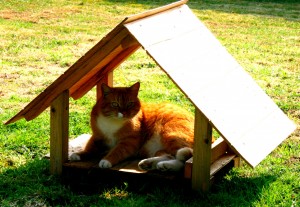 We have a cat. A lot of people have a cat. Ours is named Rino. As in rhinoceros, minus the “h” and the horn.
We have a cat. A lot of people have a cat. Ours is named Rino. As in rhinoceros, minus the “h” and the horn.
Looking back, I got him when he was still a little too small, so he definitely sees me as his cat-mom. He slept in the Big Bedroom during the first months of his life, with me stroking him upon every little yelp. When he wants to cuddle, he tucks his head in my armpit, as if he wants to get nursed. He’s the cuddliest cat I know. And the best frog catcher as well.
Rino is get-out-of-jail-free card. He radiates reassurance. Peace of mind. When I’m overwhelmed by motherhood, he can convince me to allow the children to come back downstairs after their time-out. He reminds me I prefer talking above time-outs.
When the kids are finally asleep, he crashes the couch with me. There’s nothing like the sound and feel of a purring cat to take the daily stress away. Did I mention he’s fat and orange? The perfect blanket. Matches most of my cloths too.
When our son is having a bad morning, he usually refuses to put on his cloths. He goes on strike on the couch, with his head beneath the cushions. We aren’t able to get through to him nor make eye contact. His sister will try, but she always manages to make things worse. Not her fault, and she earns her credits for trying the impossible.
And then Rino comes pawing in. Takes a few bites from his food and then goes straight for his ‘big brother’. The minute I tell my son who is coming for him, we see his face again. Eleven minutes, fifty three strokes and fourteen cuddles later, he will be dressed and heading for breakfast. The same goes for homework, violin practice and heart break: Rino will drag him through.
When our adopted daughter first met Rino, she nearly jumped to the ceiling. She only knew cats as thieves that should be chased from the orphanage’s kitchen, so she hissed and motioned to get him out, hiding behind my skirts. She didn’t develop a liking for stuffed animals either, with a brother sneaking up on her with those. He didn’t particularly like his new little sister those first months and couldn’t stop scaring her away, so we ended up hiding all the stuffed tigers and cats from them both.
Two years later, their bond has grown. They do continue teasing each other. They fight like little demons over who gets to open the curtains in the morning but an hour later in school the little one will call for her brother when she’s running from kissing boys. They always end up wanting to play with the exact same box of Legos that was untouched for weeks before, but just as frequently, they will team up against me, especially when candy is at stake. I was told that is universal proof they’ve developed a sibling bond.
The same goes for Rino. Our daughter considers him part of the family now. She demands we talk about him with first ànd last name, our family name, and she doesn’t believe it’s fair he’s not allowed to go to the zoo with us. He would love the big cats, you know. I’m glad Rino is visibly terrified inside moving vehicles so in the end our daughter’s more or less convinced he wouldn’t really like joining us.
A few weeks ago, my daughter asked how Rino came to our family. Did he come willing? Or was he taken from his mommy? After we hesitantly told her it was the latter, she immediately went to find him and whispered in his ear, “You’re just like me!” Ever since, she considers him her little brother even more.
He has become her mirror, in a way. Whenever she’s fantasizing about what she would like to tell her birth mother, he’s a major part of her story. She would like to send her birth mother pictures and drawings of Rino, but not of herself. Pictures of Rino sleeping in the bird house, of Rino coming from the woods when he hears our car approaching, of Rino sleeping with his paws in the air and head to the side, like a wrongly assembled toy. She wants to tell her all about him.
But most of all, she wants to tell her birth mother that we are such great and loving parents.
For Rino, of course.
Do you have pets that enrich your family? Do they help your children cope with life’s sharp edges? Feel free to share about their funny and serious contributions in your daily life!
This is an original post to World Moms Blog by K10K from The Penguin and The Panther.
The picture in this post is credited to the author.
If you ask her about her daytime job, Katinka will tell you all about the challenge of studying the fate of radioactive substances in the deep subsurface. Her most demanding and rewarding job however is raising four kids together with five other parents, each with their own quirks, wishes and (dis)abilities. As parenting and especially co-parenting involves a lot of letting go, she finds herself singing the theme song to Frozen over and over again, even when the kids are not even there...
More Posts

by Karyn Wills | Feb 10, 2014 | 2014, Awareness, Being Thankful, Brothers, Childhood, Education, Family, Food, Health, Life Balance, Life Lesson, Milestones, Motherhood, Nature, New Zealand, Nutrition, Older Children, Parenting, Relationships, Traditions, Travel, Vacationing, World Motherhood
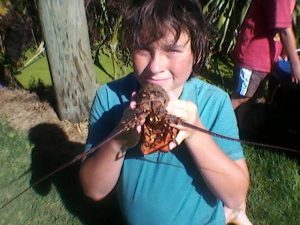 One of my enduring memories of childhood is of trapsing over paddocks, up and down hills, in gumboots too big for my feet picking mushrooms or blackberries. Eventually getting sore heels and aching legs. Eventually filling buckets and ice-cream containers with food.
One of my enduring memories of childhood is of trapsing over paddocks, up and down hills, in gumboots too big for my feet picking mushrooms or blackberries. Eventually getting sore heels and aching legs. Eventually filling buckets and ice-cream containers with food.
Probably scrapping with my sisters. Probably moaning about having to do so. Definitely covered in blackberry juice and scratches on blackberry days. Definitely not impressed by having to pick mushrooms, which I didn’t like to eat.
This summer holiday, my boys got to harvest their own food. Not blackberries and mushrooms, though. They got to harvest seafood.
Tuatua (too-ah-too-ah) are a shellfish. The children love to collect them. We go out at almost low-tide or just after low-tide in thigh-high water. We do the Twist. Our feet sink into the wet sand and feel around for something hard. When we find one, we reach down and pick it up with our hands.
Sometimes, we are side-swiped by a wave. Sometimes, we pick up a round hard sea-biscuit instead. At times, instead of the Tuatua-Twist there is a Crab-Bite-Leap with occasional bad-language. There is almost always laughter and a competition to see who can find the most. This year, the boys and their cousins also took responsibility for collecting fresh seawater twice a day, to keep the Tuatuas in, while they spat out all the sand inside their shells. They kept them cool in the fridge and, when they were finally cooked, the children ate them: some with gusto, others not so much. To me, they taste a bit like chewy seawater…
Our eldest son, 12 year-old Joe, with his 13 year-old girl cousin, Billie, trapped their own crayfish.
Crayfish are related to rock-lobster and, in our extended family, are usually trapped off-shore and by boat, or dived for with scuba-gear and tanks. Joe and Billie had kayaked out around a small peninsula and discovered an old craypot on the rocks. They dragged it out of the sea and managed to convince their fathers to repair it. They then kayaked it out again and dropped it on a good rocky spot.
Each day they went out to check their pot, just as the adults do the other craypots. The first day they caught – seawater. The second day they caught – seawater. The third day they were a bit fed up and otherwise occupied, so didn’t go out. The fourth day or maybe it was the fifth, Billie was out fishing and Joe went out alone to see what was there and to bring the pot in for good. He was very excited to discover they had caught a legal-sized cray! Yes, duly cooked and eaten.
In these days where many children don’t know that carrots grow in the ground or that their meat comes from a real animal, I love that our boys are sometimes involved in the process of food-collection and the processes of preparing it for a meal. I know that these are the Good Old Days and these moments will create some of their childhood memories.
Do your children do similar things you did as a child? Are they involved in collecting or harvesting their own food?
This is an original post to World Moms Blog from our writer in New Zealand and mum of three boys, Karyn Van Der Zwet.
The image used in this post is credited to the author.
Karyn is a teacher, writer and solo mother to three sons. She lives in the sunny wine region of Hawke’s Bay, New Zealand in the city of Napier.
More Posts

by Olga Mecking | Feb 3, 2014 | 2014, Awareness, Being Thankful, Bilingual, Culture, Education, Expat Life, Humanitarian, Inspirational, Language, Life Lesson, Living Abroad, Millennium Development Goals, Motherhood, Moving, Netherlands, Philanthropy, Shot@Life, Social Good, Stress, World Motherhood
 Until a friend of mine had a terrible tragic accident in the Himalaya mountains that left her in a coma, I had never donated to a charity. We collected some money at our wedding to give to her husband, and my mom also donated some money to a charity that takes care of her, but that was it.
Until a friend of mine had a terrible tragic accident in the Himalaya mountains that left her in a coma, I had never donated to a charity. We collected some money at our wedding to give to her husband, and my mom also donated some money to a charity that takes care of her, but that was it.
Since moving to another country and having children, I have been looking for ways to help others. I want to donate to more charities. I am just looking for the right one.
It isn’t easy. I have heard of many charities that have turned out to be scams or which just took people’s money and ran.
My situation is especially difficult because I live in a foreign country and do not know about the charities here. Though my Dutch is fluent, I still have trouble communicating in this language sometimes. In the Netherlands, many people go house-to-house collecting money for charities.
I think it is interesting to find out about charities that way because they’re often ones I’ve never heard of before. They are often small scale actions rather than big ones. But I think the mistake they’re making is the following one: before I contribute, I’d like to find out more about the organization, whether my friends have heard of it, whether there is something about them that raises red flags.
I think I might even agree to donate money if they were willing to leave a business card or something I could find them by. Instead, they want me to make a monthly commitment. Again, because I do not know them, I am not so keen on giving them my credit card number.
At the same time, my heart breaks for all the little children going through invasive treatments; who are terminally ill; who look like little ghosts because they have lost so much weight from all their chemo; for all the sick people who can’t get the treatment they need; or for children who are not so fortunate as mine; or moms in poorer countries, who have to travel for many days if they want to give birth in a hospital.
I really want to help. Since I became a mom and later a World Moms Blog contributor, I have been made aware of needs and dreams that can’t be fulfilled because of the bad conditions all around the world.
But the fact is that finding the right charity isn’t easy. I mostly say no to these door-to-door people. I do it with a heavy heart. I just want to make sure that I am really helping people in need, and not wasting my money.
Luckily, while looking for a charity to donate to, there is a lot I can do:
- In my circle of friends alone, there have been situations where help was needed, including domestic violence and pregnancy problems.
- I am considering taking the Shot@Life pledge and becoming a Champion.
- I can learn as much as I can about actions such as #MDG’s and participate in our Twitter Parties.
- I can find local communities, organizations, charities and brands.
- Many of my friends are absolutely talented people and use their talents to collect money for a good cause, and I can help them spread the word and participate.
I know this sounds like nothing, and I am not telling this to show off how good of a person I am. It is just to show that even though it sounds like nothing, we all can make a difference. I am still very new at this social good cause. I still have a lot to learn. Already I have asked my fellow World Moms Blog contributors for help choosing a charity I can actually trust and they have come up with great charities.
I need to do more. I want to do more. I will do more.
Do you have a charity or cause worth supporting? Tell us about it and help spread the word
This is an original post to World Moms Blog from Olga Mecking in The Netherlands.
The image used in this post is credited to Images Money. It holds a Flickr Creative Commons attribution license.
Olga is a Polish woman living in the Netherlands with her German husband. She is a multilingual expat mom to three trilingual children (even though, theoretically, only one is trilingual since she's old enough to speak). She loves being an expat, exploring new cultures, learning languages, cooking and raising her children. Occasionally, Olga gives trainings in intercultural communication and works as a translator. Otherwise, you can find her sharing her experiences on her blog, The European Mama. Also take a while to visit her Facebook page .
More Posts - Website
Follow Me:




 All parents agree, once their first child came into their lives, everything changed. Our life routine changed, some of our friends changed, our clean house no longer stayed clean, the term “empty laundry basket” became an abstract thing, our plans for the future changed…even some of our dreams. We no longer sleep, we no longer eat, we no longer have the time to take care of ourselves as much as we wish. Eating at a dining table is a privilege, at least in my house, because most of my meals are consumed on the run, and my kids are not even in school yet!
All parents agree, once their first child came into their lives, everything changed. Our life routine changed, some of our friends changed, our clean house no longer stayed clean, the term “empty laundry basket” became an abstract thing, our plans for the future changed…even some of our dreams. We no longer sleep, we no longer eat, we no longer have the time to take care of ourselves as much as we wish. Eating at a dining table is a privilege, at least in my house, because most of my meals are consumed on the run, and my kids are not even in school yet!


















